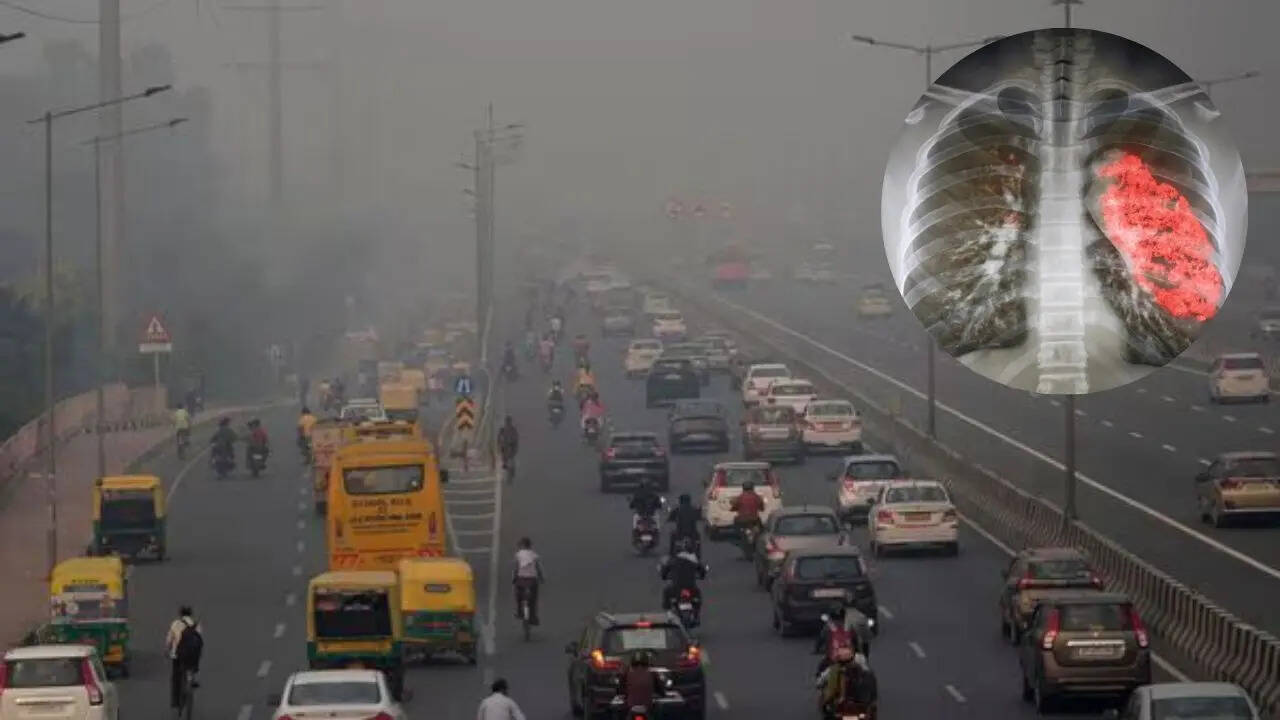Air Pollution Crisis: Toxic Smog Is Turning Pneumonia Into A Silent Killer, Doctors Warn

Credits: PTI/Canva
SummaryAs temperatures fall and pollution levels climb, cases of pneumonia are on the rise. Doctors warn that toxic air filled with fine particulate matter and harmful gases can worsen lung infections, delay recovery, and make breathing more difficult. Keep reading for more details.
End of Article
